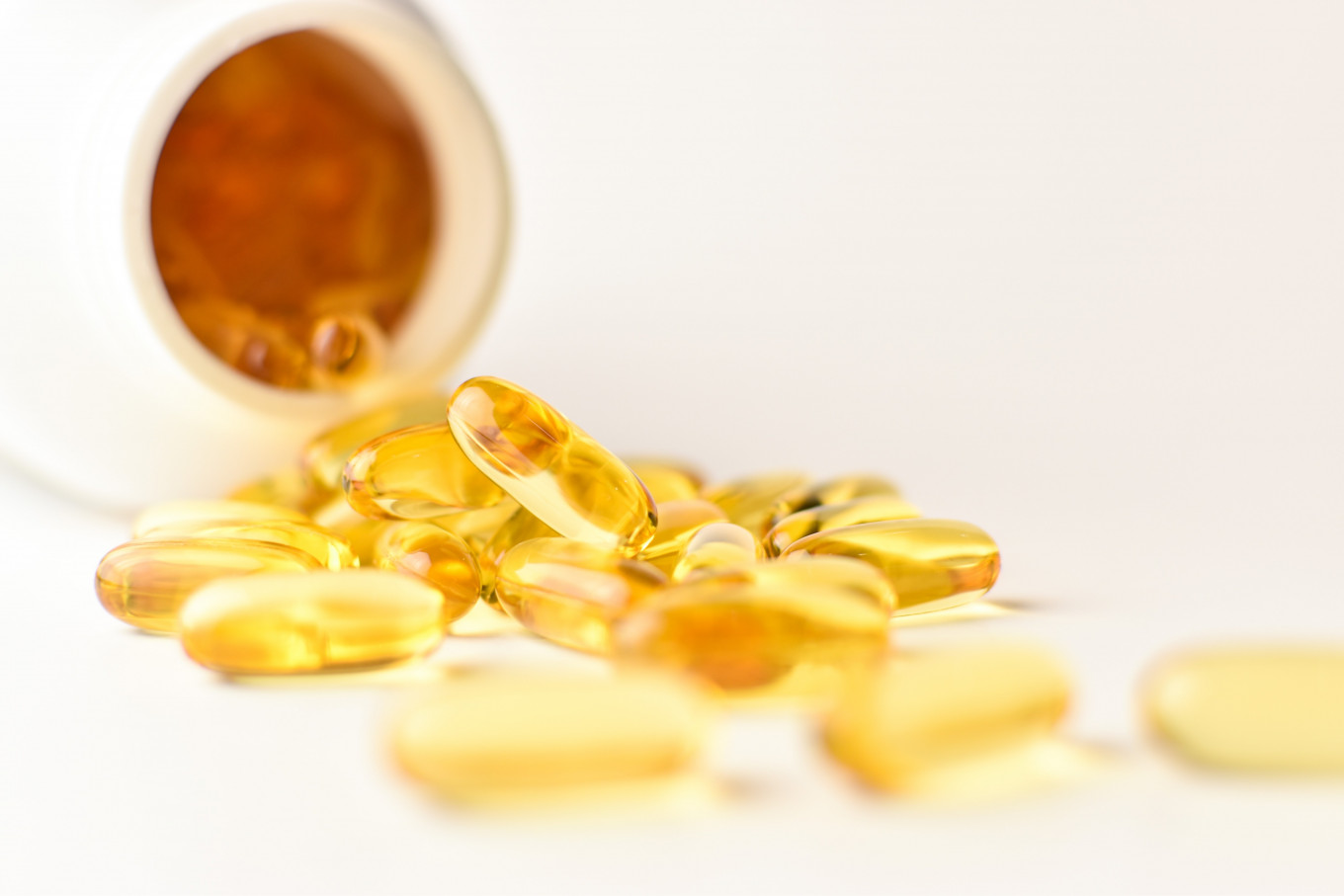Shutterstock
If you grew up on Puritan’s Pride or forced spoonfuls of cod liver oil, you’re not alone.
In today’s health-obsessed world, supplements have become a multibillion-dollar industry promising to fix everything from fatigue to forgetfulness.
But navigating the supplement aisle can feel like decoding a science textbook. And let’s face it, not every pill lives up to the hype.
We can’t cover every trending nutrient, so we’ve narrowed it down to five popular supplements that you’ve probably encountered on your social media feed or heard friends talk about.
While they aren't miracle fixes, they can likely support your wellness goals, especially when paired with a healthy diet and lifestyle.
“What comes first is a balanced intake of vegetables, fruits, meats and eggs,” says Gatoet Soesono, a family physician at Rumah Sakit Pondok Indah and The Joy Women & Children's Community (JWCC).

Thank you!
For signing up to our newsletter.
Please check your email for your newsletter subscription.
“Then you look toward vitamins.”
1. For all-around support: Magnesium
Magnesium is having a moment, and for good reason.
A 2023 study by researchers in three United Kingdom universities found that 9 to 17 percent of adults and 15 to 20 percent of adolescents have a magnesium deficiency, which is linked to conditions like diabetes, heart disease and even Alzheimer’s.
“People of every age need it, as it helps produce protein and maintain the health of our bones, muscles and heart,” says Soesono.
Magnesium plays a role in regulating blood sugar, maintaining nerve function and preventing migraines. And yes, it’s also known to support deeper sleep and reduce stress.
There are several types of magnesium supplements, each suited for different needs. Magnesium citrate may help with constipation, magnesium glycinate is often recommended for anxiety and better sleep, and magnesium malate supports muscle function and energy production.
If your leafy greens and whole grains aren’t cutting it, magnesium might be a smart addition to your routine.
2. For slowing down the clock: Omega-3
Your childhood cod liver oil? Turns out it wasn’t just a parental punishment; it was a preview.
Soesono says omega-3 is good for our heart, brain, kidneys and for reducing blood pressure.
“We need omega-3, but just the right amount,” he says. “If you have enough food, don't add more omega-3.”
A major clinical trial in Switzerland involving 788 people aged 70 and up found that a daily 1-gram dose of omega-3s slowed biological aging by about three months over three years.
Participants also had 10 percent fewer falls and 13 percent fewer infections compared to the placebo group.
Add in vitamin D and light exercise, and the combo becomes a promising longevity protocol. A little fish oil could go a long way in keeping you sharp and steady.
3. For healthy bones: D3 + K2
Ladies and gentlemen, meet the power couple of your supplement shelf: Vitamin D3 and K2.
These two vitamins play a central role in calcium metabolism: D3 helps your body absorb calcium, often through sunlight, fatty fish or eggs. K2, found in fermented foods and animal products, makes sure that calcium ends up in your bones where you need it, and not your arteries.
Taking D3 without K2 might mean calcium gets deposited where you don’t want it, according to several studies.
“They work together, D3 and K2. D3 increases calcium absorption, and K2 carries it to the bones,” Soesono says.
Pairing the two, therefore, helps prevent arterial calcification and supports heart and bone health, writes Clover Internal Medicine. Think of D3 as the gate-opener, and K2 as the traffic cop directing calcium to the right destination.
4. For athletic gains and more: Creatine
Gym bros aren’t just chugging protein shakes anymore, they’re adding a dash of creatine too.
“Creatine is a natural protein produced by the body, but it can also be found in several sources of food like red meat and fish,” Soesono says.
Popular among those who engage in intense workouts, creatine provides quick energy for muscle contractions and helps speed up recovery.
While creatine monohydrate has long been studied for its physical performance benefits, newer research points to additional perks.
A 2019 review by researchers in Greece of trials involving 281 individuals found evidence that short-term memory and reasoning may be improved by creatine, while a 2021 study led by researchers from Brazil said there is a potential for creatine supplementation to improve cognitive processing.
You can boost your creatine intake through protein-rich foods like beef and shellfish, or opt for supplements available in powders, tablets and even energy bars.
5. For more than just your gut: The biotics
Prebiotics, probiotics, synbiotics and postbiotics? There’s a lot to unpack in the “biotics” world. Let’s try to keep it simple.
Synbiotics combine probiotics (the live good bacteria) with prebiotics (the food that helps the bacteria grow) to enhance the survival of probiotic microorganisms in the gastrointestinal tract, which leads to reduced inflammation and better immune health.
Prebiotics can also aid weight management and, according to a 2023 study involving life sciences and biotechnology researchers in India, it is an overlooked player in the fight against cancer as it plays a key role in suppressing tumor growth.
Postbiotics, meanwhile, are the beneficial byproducts created after digestion, such as vitamins B and K and amino acids. They help block harmful bacteria from thriving. Many of the health benefits linked with prebiotics and probiotics actually come from the production of postbiotics, according to the website Healthline.
“Postbiotics are like a supporting cavalry for your immune system,” says Soesono.
But before adding any supplement to your routine, make sure to do your research and when in doubt, talk to a doctor. Your wellness deserves more than guesswork.
Aqraa Sagir is a writer for The Jakarta Post's Creative Desk. He’s chronically online in the hope it would be a useful asset for the job.























